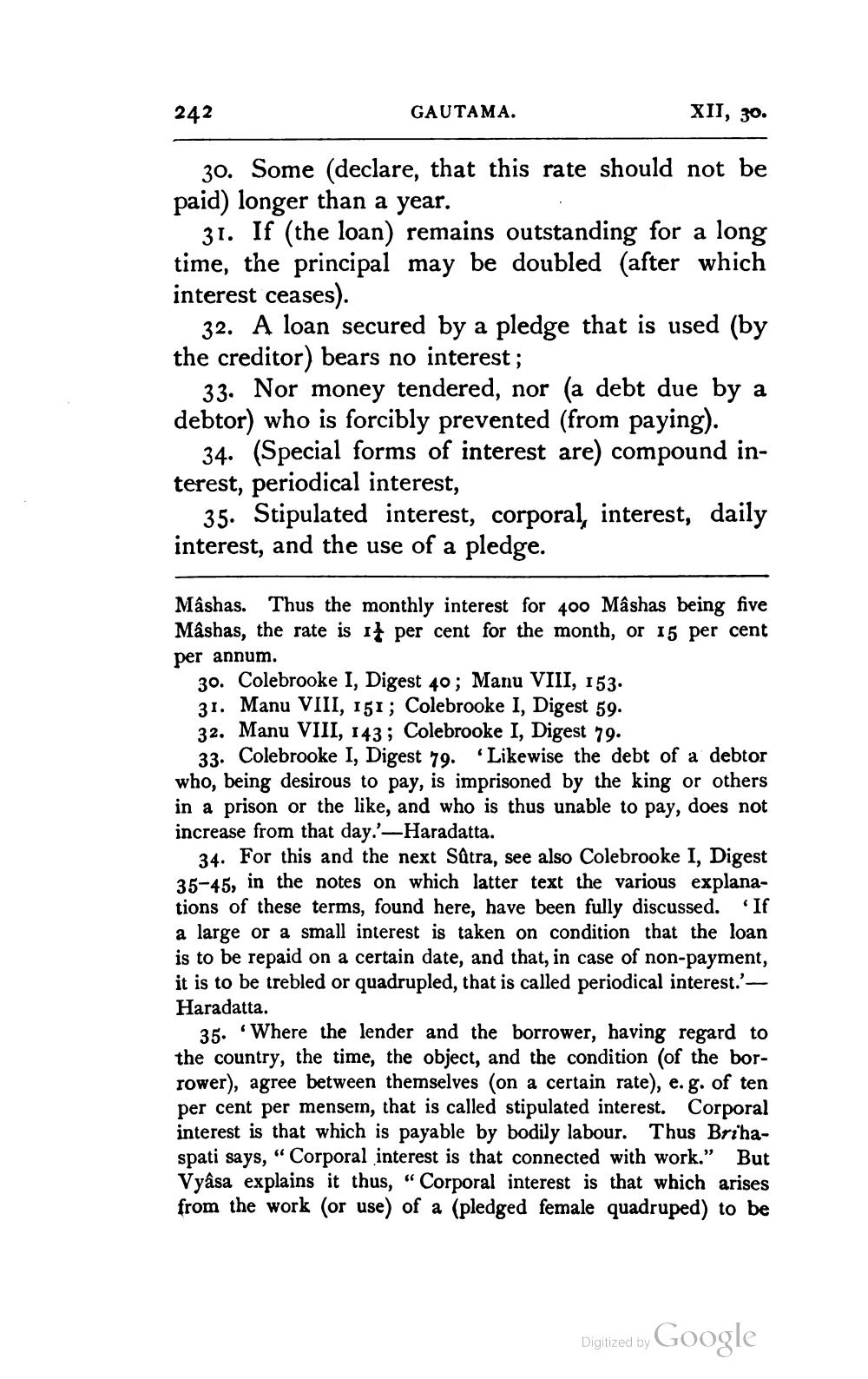________________
242
GAUTAMA.
XII, 30.
30. Some (declare, that this rate should not be paid) longer than a year.
31. If (the loan) remains outstanding for a long time, the principal may be doubled (after which interest ceases).
32. A loan secured by a pledge that is used (by the creditor) bears no interest;
33. Nor money tendered, nor (a debt due by a debtor) who is forcibly prevented (from paying).
34. (Special forms of interest are) compound interest, periodical interest,
35. Stipulated interest, corporal, interest, daily interest, and the use of a pledge.
Mashas. Thus the monthly interest for 400 Mâshas being five Mâshas, the rate is it per cent for the month, or 15 per cent per annum.
30. Colebrooke I, Digest 40; Manu VIII, 153. 31. Manu VIII, 151; Colebrooke I, Digest 59. 32. Manu VIII, 143 ; Colebrooke I, Digest 79.
33. Colebrooke I, Digest 79. Likewise the debt of a debtor who, being desirous to pay, is imprisoned by the king or others in a prison or the like, and who is thus unable to pay, does not increase from that day.' -Haradatta.
34. For this and the next Satra, see also Colebrooke I, Digest 35-45, in the notes on which latter text the various explanations of these terms, found here, have been fully discussed. If a large or a small interest is taken on condition that the loan is to be repaid on a certain date, and that, in case of non-payment, it is to be trebled or quadrupled, that is called periodical interest.'Haradatta.
35. Where the lender and the borrower, having regard to the country, the time, the object, and the condition of the borrower), agree between themselves (on a certain rate), e. g. of ten per cent per mensemn, that is called stipulated interest. Corporal interest is that which is payable by bodily labour. Thus Brihaspati says, “Corporal interest is that connected with work.” But Vyâsa explains it thus, “ Corporal interest is that which arises from the work (or use) of a (pledged female quadruped) to be
Digized by Google




